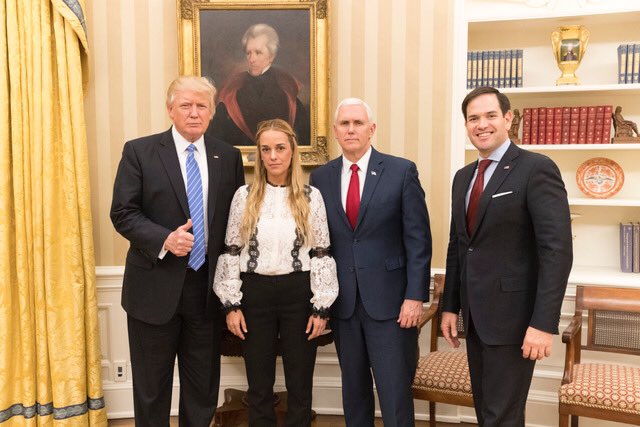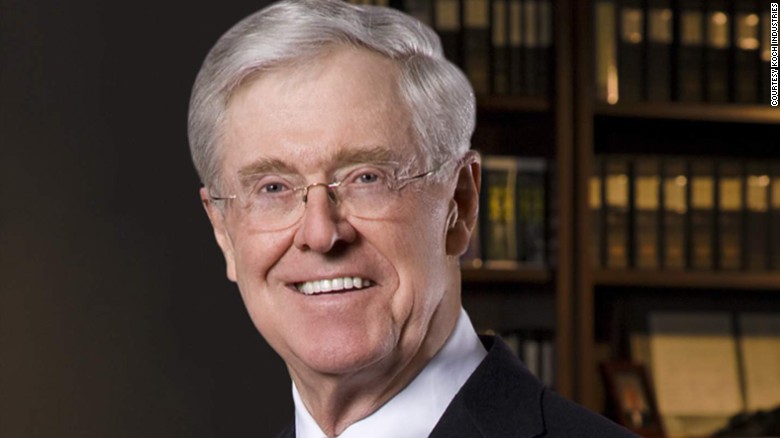On Venezuela, Rubio Assumes U.S. Role of Ouster in Chief

Petare, a slum in Caracas, Venezuela, where violent protests have erupted challenging the legitimacy of Nicolás Maduro’s presidency.CreditCreditMeridith Kohut for The New York Times
By Peter Baker and Edward Wong
- Jan. 26, 2019 WASHINGTON — His hand chopping in the air, his voice stern and stalwart, he declared that it was time for the regional despot to go and warned of the consequences if he did not. With a commander in chief’s resolve, he vowed that the United States would do whatever it took to protect its own diplomats on the ground.
It was not the commander in chief but Senator Marco Rubio, the Florida Republican who nearly three years after losing his own bid for the presidency has become a lead policy architect and de facto spokesman in a daring and risky campaign involving the United States in the unrest that is now gripping Venezuela.
Through sheer force of will and a concerted effort to engage and educate President Trump, Mr. Rubio has made himself, in effect, a virtual secretary of state for Latin America, driving administration strategy and articulating it to the region from the Senate floor, as he did the other day, and every television camera he can find. Perhaps no other individual outside Venezuela has been more critical in challenging President Nicolás Maduro.
“He’s picked a battle he can’t win,” Mr. Rubio, 47, said of Mr. Maduro in an interview on Friday. “It’s just a matter of time. The only thing we don’t know is how long it will take — and whether it will be peaceful or bloody.”
.]
It was Mr. Rubio who has been whispering in Mr. Trump’s ear since the early days of his presidency about the depravity of Mr. Maduro’s government and the need for American leadership. And it was Mr. Rubio along with Vice President Mike Pence and others who urged the president to back an opposition leader seeking to unseat Mr. Maduro.
“He has been relentless since Trump’s election, working hard to earn the president’s trust in this policy area,” said former Representative Carlos Curbelo, a fellow Florida Republican. “He owns it and it has clearly paid dividends for him, and more importantly for the victims of Maduro’s tyranny.”
The senator’s efforts have put the United States in the middle of a roiling confrontation in Caracas that pits Mr. Maduro and
Venezuelan military leaders against a popular uprising led by Juan Guaidó, the 35-year-old political activist and industrial engineer who serves as head of the elected National Assembly.
After Mr. Pence called to pledge Mr. Trump’s support, Mr. Guaidó asserted this past week that he is the interim president under Venezuela’s Constitution because the election last year that kept Mr. Maduro in office was illegitimate. As Mr. Pence promised, the United States followed through by recognizing Mr. Guaidó as the rightful leader, as did about 20 other countries, including Canada, Brazil and Argentina.
On Saturday, Germany, France and Spain said they would recognize Mr. Guaidó if new elections are not held quickly. At a United Nations Security Council meeting, Alan Duncan, Britain’s representative, called Mr. Guaidó “the right man to take Venezuela forward.” Mr. Rubio chimed in as well to “urge more nations” to join the effort.

Senator Rubio Press
✔@SenRubioPress
I strongly support @SecPompeo in calling an emergency session on Venezuela at the @UN Security Council to urge more nations to support Venezuela’s return to democratic order and freedom from tyranny.
Senator Marco Rubio, center, Republican of Florida, has become a chief policy architect and de facto spokesman in a campaign to involve the United States in the unrest that is now gripping Venezuela.CreditMandel Ngan/Agence France-Presse — Getty Images

Still, Mr. Rubio is well aware of the gamble the United States has taken by pushing for new leadership in Caracas.
In the interview on Friday, he outlined four possible outcomes to the upheaval: Mr. Maduro could hold onto power; he could be forced out in a palace coup but replaced by a civilian leader just as bad; or he could be unseated by a military installing itself as the new government. Or a popular revolt like the one Mr. Guaidó is currently leading could force change.
“The U.S. interest is reflected in only one of those outcomes,” Mr. Rubio acknowledged.
Mr. Rubio’s approach has generated unusually bipartisan support, including from leading Democrats like Senators Richard J. Durbin of Illinois and Robert Menendez of New Jersey. But some veteran government officials and analysts expressed concern that the administration has been too ad hoc: It failed to line up support in advance from the Venezuelan military, which may be critical to Mr. Maduro’s survival. It has given no indication of a clear plan to protect the United States Embassy and its personnel against possible retaliation.
And while Mr. Rubio insists there are unspecified contingency options that he will not reveal, analysts say the Trump administration does not seem prepared with a Plan B in case Mr. Maduro defies the pressure and holds onto power.
From more liberal members of Congress comes a more philosophical or ideological objection, a concern that the latest intervention in Latin America evokes a sometimes dark history of Washington meddling in the internal affairs of its neighbors.
“The United States needs to stay out of Venezuela,” Representative Tulsi Gabbard, a Hawaii Democrat who is running for president, wrote on Twitter. “Let the Venezuelan people determine their future. We don’t want other countries to choose our leaders — so we have to stop trying to choose theirs.”
Representative Ro Khanna, Democrat of California, bemoaned the influence Mr. Rubio has had on the president. “As a candidate, Trump’s call for greater restraint provided a sharp contrast to Rubio’s foreign policy,” he said by email on Saturday. “But on Venezuela, partly given the domestic politics in Florida, he has deferred to Rubio as a point person for nearly two years.”
Like other Cuban-American leaders in Florida, Mr. Rubio has long stood against Mr. Maduro and his predecessor, Hugo Chávez, whose socialist governments have been aligned with Havana. He has also been a leading voice pressing the administration to take tough measures against China and Russia, traditional allies of Cuba, as well as other human rights violators.
Mr. Rubio’s staunch opposition to Mr. Maduro has so gotten under the skin of the hard-liners in Venezuela that a senior official in Caracas reportedly ordered an assassination attempt against the senator in 2017.
Mr. Maduro at the Miraflores presidential palace this month. Mr. Rubio has long stood against Mr. Maduro and his predecessor, Hugo Chávez, whose leftist governments have been aligned with Cuba.Creditvia Reuters

Image
Mr. Rubio responded with bravado. After Secretary of State Mike Pompeo imposed sanctions last year on Diosdado Cabello Rondón, the vice president of the ruling United Socialist Party who was said to have ordered the hit, the senator taunted the Venezuelan on Twitter by posting a photograph of prisoners in orange jumpsuits, suggesting he could wind up behind bars.
“What size uniform do you wear these days extra large or XX-large?” Mr. Rubio wrote. “Just want to make sure your stay is as comfortable as possible.”
Mr. Rubio understands that after years of misadventures overseas, many Americans are reluctant to take on yet another foreign dictatorship. “Why should it matter to us?” he asked on the Senate floor on Thursday. “Why should America even be involved in this?”
He went on to describe the “sheer repression” and corruption of Mr. Maduro’s government that has driven his oil-rich country into the depths of economic despair, prompting three million Venezuelans to flee.
Mr. Rubio’s real target, though, has been an audience of one, a man who in the throes of their battle for the Republican nomination in 2016 derided him as “Little Marco.”
He waited less than a month after Mr. Trump took office to begin a persistent effort to draw the president’s attention to Venezuela. In February 2017, Mr. Rubio along with Mr. Pence helped usher Lilian Tintori, a Venezuelan political activist and television star, into the Oval Office to meet Mr. Trump. She told the president about her husband, Leopoldo López, an opposition leader under house arrest.
Mr. Trump later tweeted a photo of himself giving a thumbs up next to Ms. Tintori, with Mr. Rubio and Mr. Pence on her other side. In the tweet, the president called on Venezuela to release her husband immediately.
View image on Twitter


Donald J. Trump
✔@realDonaldTrump
Venezuela should allow Leopoldo Lopez, a political prisoner & husband of @liliantintori (just met w/ @marcorubio) out of prison immediately.
“The president really responds to the human side of issues,” Mr. Rubio said on Friday. “If you can humanize it or personalize it, that’s important. When he met her and was able to hear her, it made an impression on him.”
Since then, Mr. Rubio said he has spoken with Mr. Trump about Venezuela at least once a month. Mr. Pence has long seen the issue similarly and the two gained allies with the arrival of Mr. Pompeo and John R. Bolton, the national security adviser.
Juan Guaidó, 35, a political activist, speaking on Friday. Mr. Guaidó has asserted that he is the interim president under Venezuela’s Constitution.CreditMeridith Kohut for The New York Times
Image

Juan Guaidó, 35, a political activist, speaking on Friday. Mr. Guaidó has asserted that he is the interim president under Venezuela’s Constitution.CreditMeridith Kohut for The New York Times
Mr. Rubio also helped place another Cuban-American political figure from Florida, Mauricio Claver-Carone, as senior director for Western Hemisphere affairs at the National Security Council. “Once Mauricio went in, the policy went on hyperdrive,” Mr. Rubio said. “He’s aware of these issues.”
Still, some involved in the issue said Mr. Rubio’s sway has been overstated and that, as important as he has been, Mr. Trump needed little persuasion. When Mr. Guaidó was briefly arrested and then released this month after first broaching the idea of taking over as interim president, Mr. Pence called the opposition leader to convey the president’s support.
Last Tuesday, the day before mass protests against Mr. Maduro, Mr. Trump met with Mr. Pence and Mr. Bolton. The vice president presented a memo with options and encouraged Mr. Trump to formally recognize Mr. Guaidó as the country’s leader if he did claim power, according to a White House official. The president agreed.
Later that day, Mr. Trump and his team met with Mr. Rubio at the White House along with three other Florida Republicans: Gov. Ron DeSantis, Senator Rick Scott and Representative Mario Diaz-Balart. Mr. Rubio likewise embraced the idea of recognizing Mr. Guaidó.
Mr. Pence called Mr. Guaidó afterward and told him that the United States would support him if he claimed the presidency. The vice president uploaded a video addressing the Venezuelan people and encouraged protesters. The next day, Mr. Guaidó asserted his leadership and Mr. Trump backed him.
Mr. Rubio speaks in vague terms about his ties with Mr. Guaidó. He cannot recall how many times the two men have met; unlike Ms. Tintori, Mr. Guaidó has not been a prominent opposition figure who traveled abroad often. “A year and a half ago, he wouldn’t have been a name you would have heard of,” Mr. Rubio said. “I don’t think this was an ambition of his.”
Nor was his name high on the list at the State Department. As recently as this month, when aides to Representative Jim Himes, Democrat of Connecticut, spoke with department officials about the agency supporting Mr. Guaidó if he claimed the title of interim president, they were met with resistance.
“We were cautioned by State not to inflame a volatile situation,” Mr. Himes said in an interview.
Mr. Rubio has also pressed the administration to increase aid to Venezuelans, who have suffered for years from an imploding economy. Mr. Pompeo on Thursday announced $20 million in food and medical aid for Venezuelans.
But the real worry in Washington is if the situation in Caracas takes a violent turn. Mr. Rubio has talked with administration officials about options if it does — and speaks with authority as if he were the decider.
“If Maduro turns violent, whether it’s against Guaidó or the assembly or the people or, God forbid, our embassy, the consequences will be swift and severe,” he said. “I can tell you for a fact that it won’t be a letter of condemnation.”
At least not if he has anything to say about it.
Adam Goldman contributed reporting from Washington, and Megan Specia from New York.
Follow Peter Baker and Edward Wong on Twitter: @peterbakernyt and @ewong.
Above is from: https://www.nytimes.com/2019/01/26/world/americas/marco-rubio-venezuela.html








